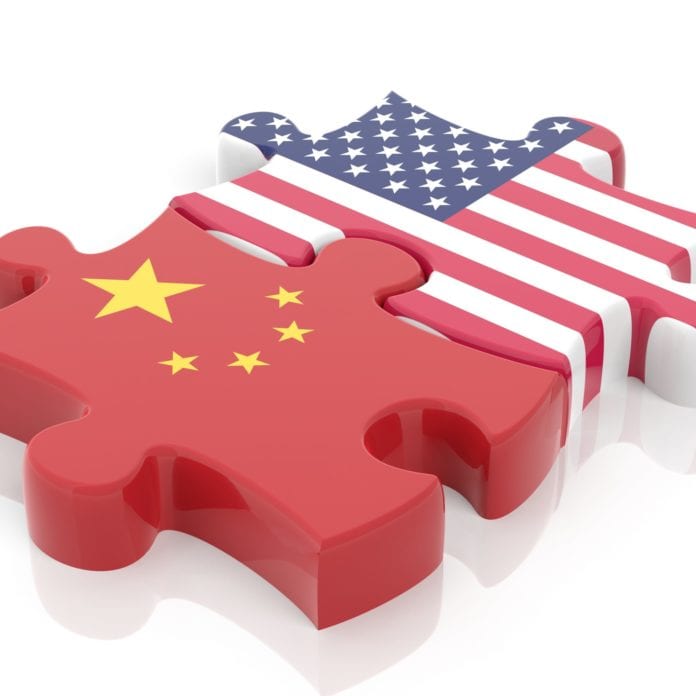U.S. President Donald Trump said Saturday that U.S. companies can sell their equipment to Chinese vendor Huawei as long as the transactions won’t present a “great, national emergency problem.”
Trump made these comments during a press conference at the G-20 summit in Osaka, Japan, after a bilateral meeting with Chinese President Xi Jinping, which had the main aim of discussing an impasse in the ongoing trade dispute between the two countries.
In May, the Trump administration confirmed that the U.S. Department of Commerce added Huawei to its Entity List, a decision that effectively banned the company from buying parts and components from U.S. companies without U.S. government approval. Under the order, Huawei will need a U.S. government license to buy components from U.S. suppliers.
At that time, firms including Google, Intel, Qualcomm and Microm had halted shipments due to the restrictions. Huawei relies heavily on computer chips imported from U.S companies. Google also supplied the company with its Android operating system.
However, since then, the administration announced that it would ease certain export restrictions recently imposed on Chinese vendor Huawei Technologies during 90 days, in a move to give operators time to make other arrangements.
Trump also said that Huawei issue was still part of the ongoing trade discussions between Washington and Beijing, but for now, he would move to resume allowing U.S. firms to sell components and software to the Chinese company. He also said that “the [U.S.] companies were not exactly happy that they couldn’t sell because they had nothing to do with whatever was potentially happening with respect to Huawei.”
The Trump administration has for months been pushing other countries to stop or curtail their use of Huawei equipment based on claims of national security and privacy concerns — going so far as to threaten that the U.S. might stop sharing sensitive information with countries which allowed the use of Huawei equipment in their telecom networks. The national security concerns over Chinese telecom equipment suppliers such as Huawei were presented as separate from economic concerns related president’s trade war with China — although the president has made statements that conflate the two, despite bipartisan objections from senators that Huawei not be used as a “bargaining chip” in trade negotiations because of the national security threat they said it represents.
White House economic adviser Larry Kudlow said on Fox News on Sunday that Trump’s move was not “amnesty” for Huawei.
Kudlow said the administration has not removed the Chinese company from the blacklist that still blocks the company from buying American products. Instead, the Department of Commerce will grant more licenses to allow U.S. firms to sell products to Huawei, so long as those sales pose no threat to national security, the official said.
“This is not a general amnesty, if you will,” Kudlow said. “Huawei will remain on the so-called entity list where there are serious export controls and in national security inferences or suggestions there won’t be any licenses.”
The Semiconductor Industry Association — which represents 95% of the U.S. semiconductor industry including chip companies like Broadcom, Qualcomm and Intel — reacted positively to Trump’s comments, but said it wanted more details about the plan regarding Huawei.
“We are encouraged the talks are restarting and additional tariffs are on hold and we look forward to getting more detail on the president’s remarks on Huawei,” said John Neuffer, president and CEO of the organization.
However, Trump’s comments regarding Huawei were criticized by Republican Senator Marco Rubio (R-Florida). Rubio, a member of the Senate Intelligence Committee, was among the senators who objected to the issues around Huawei as a national security threat being dealt with as part of the trade war.
“If President Trump has in fact bargained away the recent restrictions on Huawei, then we will have to get those restrictions put back in place through legislation. And it will pass with a large veto proof majority,” Rubio said in a tweet.
“If President Trump has agreed to reverse recent sanctions against Huawei he has made a catastrophic mistake. It will destroy the credibility of his administrations warnings about the threat posed by the company, no one will ever again take them seriously,” he added in another tweet.
Huawei declined to comment on the matter, with a representative stating: “We acknowledge the U.S. president’s comments relating to Huawei and have no further comment at this time.”

